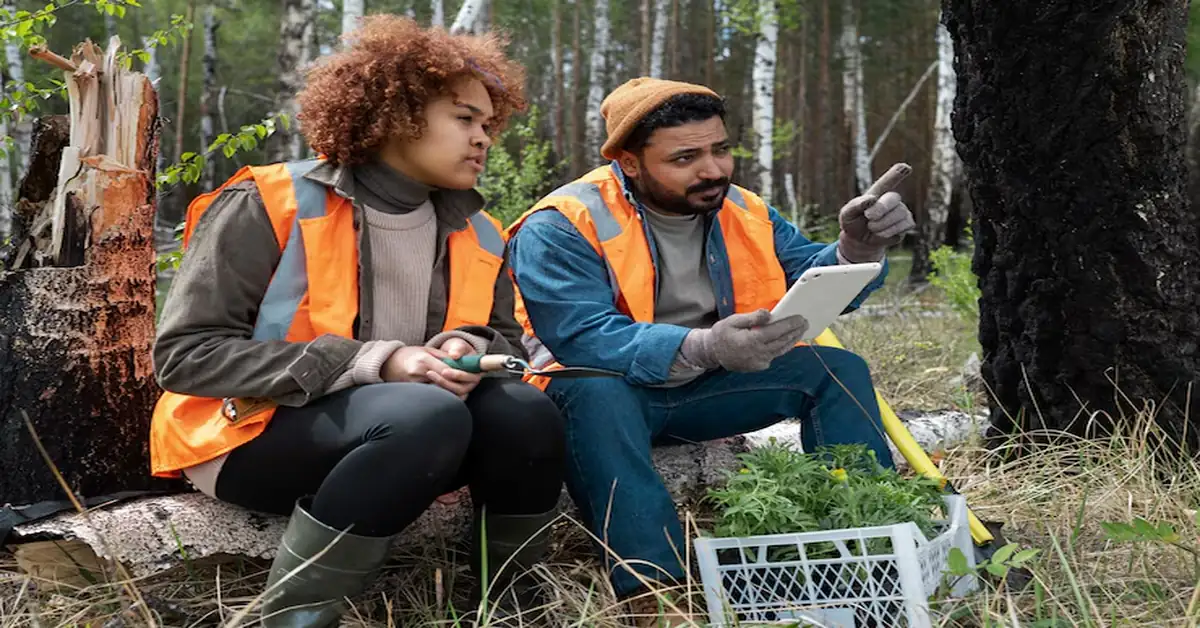Waste management is no longer just about collecting trash — it’s about protecting the planet, conserving resources, and building a sustainable future. As the world shifts toward eco-conscious living, waste management careers are becoming essential and increasingly sought after.
In this guide, we’ll explore the different paths within the industry, what it takes to succeed, and why now is the perfect time to consider a career in waste management.
Why Waste Management Careers Matters
Global waste generation is projected to increase by 70% by 2050, according to the World Bank. This rise underscores a pressing need for professionals who can help minimize environmental damage and maximize resource recovery.
Key Reasons Waste Management is Critical:
- Reduces greenhouse gas emissions
- Minimizes pollution and landfill overflow
- Protects public health
- Supports the circular economy
These issues demand skilled workers — from engineers to recycling coordinators — making waste management careers more important than ever.
What Are Waste Management Careers?
Waste management careers refer to professions focused on handling, reducing, reusing, recycling, or safely disposing of waste. These roles exist in the public and private sectors, nonprofits, and environmental consultancies.
Industries Involved:
- Municipal services
- Construction and demolition
- Hazardous waste and chemicals
- E-waste and electronics recycling
- Industrial and medical waste
- Environmental engineering
These roles span everything from hands-on fieldwork to high-level policy planning, offering opportunities for a wide range of skills and interests.
Types of Jobs in Waste Management
Here’s a breakdown of common and emerging roles in the field:
1. Waste Collection Technician
- Frontline workers who collect garbage, recycling, or compost.
- Requires physical fitness and attention to safety.
2. Recycling Coordinator
- Manages recycling programs for municipalities or organizations.
- Educates the public and oversees compliance with recycling laws.
3. Hazardous Waste Specialist
- Handles disposal of materials like chemicals or medical waste.
- Works with safety guidelines and environmental regulations.
4. Environmental Engineer
- Designs and improves waste treatment systems.
- Collaborates with government and industry to ensure environmental compliance.
5. Sustainability Analyst
- Develops and evaluates sustainability strategies.
- Collects data to track waste reduction and environmental impact.
6. Waste Management Supervisor
- Oversees crews, routes, and logistics.
- Ensures efficient and safe waste collection and disposal.
7. Landfill or Site Operator
- Manages the daily operation of waste facilities.
- Handles compliance, safety, and environmental protocols.
These are just a few roles — the industry also includes marketing, tech, logistics, and compliance specialists.
Education and Skills Needed
Your path depends on the specific role, but here’s a general guide to what’s needed:
Educational Backgrounds:
- High School Diploma: Required for most entry-level roles.
- Associate Degree: Useful for technical or operator positions.
- Bachelor’s in Environmental Science or Engineering: Needed for mid-to-senior positions.
- Master’s or Certifications: May be required for specialized roles or advancement.
Key Skills:
- Environmental awareness
- Mechanical or technical aptitude
- Communication and teamwork
- Problem-solving
- Familiarity with safety and regulatory procedures
Many roles also require certifications like:
- OSHA Safety Training
- HAZWOPER (Hazardous Waste Operations and Emergency Response)
- LEED Accreditation
- Solid Waste Association of North America (SWANA) certifications
Career Pathways and Salary Insights
Waste management careers offers upward mobility, with plenty of room for growth.
Entry-Level Jobs:
- Waste Collector: $32,000–$45,000/year
- Recycling Sorter: $30,000–$40,000/year
Mid-Level Roles:
- Recycling Coordinator: $50,000–$70,000/year
- Landfill Supervisor: $60,000–$80,000/year
Senior-Level Careers:
- Environmental Engineer: $70,000–$110,000/year
- Operations Manager: $90,000–$130,000/year
Salaries can vary based on region, experience, and employer, but the industry generally offers stable, well-paying work.
Working Conditions and Job Outlook
The waste management careers sector is one of the few industries that remains essential in all economic climates.
Outlook:
- Projected growth: 8% by 2032 (U.S. Bureau of Labor Statistics)
- High demand in urban areas and growing cities
- Increased need for eco-focused roles due to environmental regulations
Work Environments:
- Outdoors (collection, landfills, recycling centers)
- Offices (coordinators, analysts)
- Labs (engineers, scientists)
While some roles involve physical labor and exposure to waste, strict safety protocols are in place to protect workers.
Top Companies Hiring in Waste Management
Leading Employers:
- Waste Management, Inc.
- Republic Services
- Veolia Environmental Services
- GFL Environmental
- Covanta Energy
- Clean Harbors
These companies offer benefits, training programs, and advancement opportunities — making them great places to grow your career.
How to Get Started in a Waste Management Careers
Steps to Launch Your Career:
- Identify Your Interests (hands-on work, engineering, sustainability?)
- Get the Right Education (degree, diploma, or certificate)
- Look for Entry-Level Jobs or Internships
- Earn Certifications (HAZWOPER, SWANA, OSHA)
- Apply to Municipal and Private Employers
- Build Skills in Tech & Data Tools (GIS, Excel, waste tracking software)
Use platforms like Indeed, LinkedIn, and government job portals to find openings in your area.
Challenges and Innovations in the Field
Current Challenges:
- E-waste management
- Illegal dumping
- Public awareness and participation
- Labor shortages in collection roles
Innovative Solutions:
- AI sorting technologies
- Smart bins with fill sensors
- Waste-to-energy systems
- Plastic-to-fuel processes
Technology is reshaping waste management — offering new career opportunities at the intersection of tech and sustainability.
Conclusion: Your Waste Management Careers Starts Now
The world is changing, and so is the way we handle waste. Waste management careers are no longer just jobs — they’re missions. Whether you’re fresh out of school, switching fields, or seeking a purposeful profession, there’s a place for you in this essential, evolving industry.
Frequently Asked Questions (FAQ)
Is waste management a good career?
Yes, it’s stable, essential, and increasingly well-paid. It also offers meaningful work contributing to sustainability.
What qualifications do I need?
Entry-level jobs often need a high school diploma. Mid to senior-level roles require degrees or certifications in environmental science, engineering, or waste operations.
Are there remote jobs in waste management?
Yes. Roles like sustainability analysts, program coordinators, or consultants often work remotely or hybrid.
What’s the highest-paying job in waste management?
Senior engineers, operations directors, and environmental consultants can earn six-figure salaries depending on experience and location.
How do I transition into this field from another industry?
Start by identifying transferable skills (logistics, safety, data analysis), get certified, and apply for entry or mid-level positions









